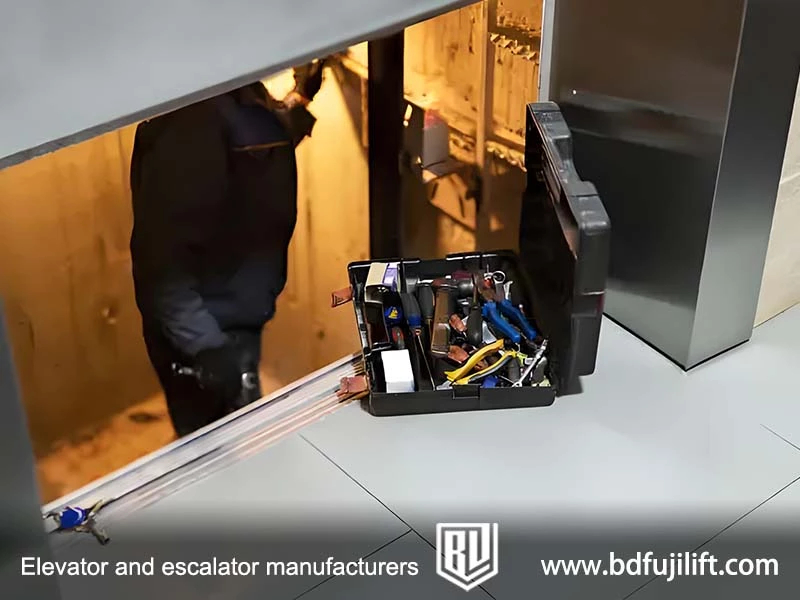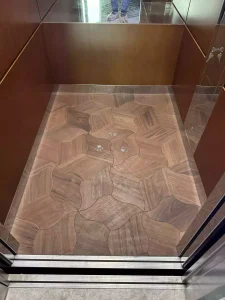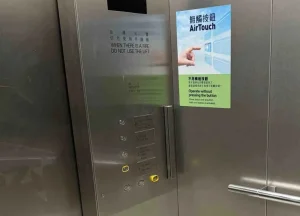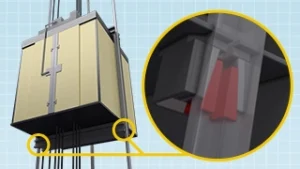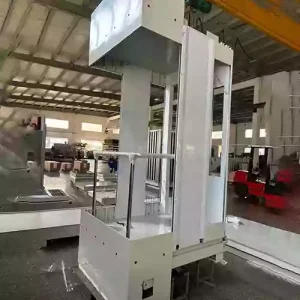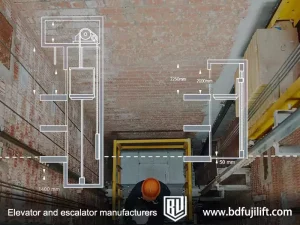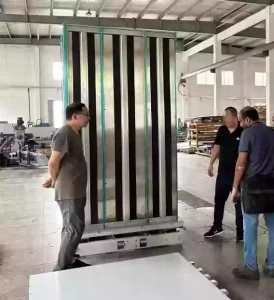Elevator Upgrades, also known as improvements or modernizations, are changes that make your elevator better than before. If you’re managing an older building or just want smoother rides and safer features, upgrading your elevator is a smart move. These changes can improve comfort, safety, and even how your building looks.
That said:
Not all elevator upgrades are needed in every situation. What you choose depends on your building type, budget, and how often the elevator is used. You should also check local rules before starting any upgrade.
The Best Elevator Parts to Upgrade
If you want your elevator to work its best, this blog is just right for you. We’ll walk you through the most valuable elevator upgrades that can make your elevator look better, feel more comfortable, and run more smoothly.
So, let’s dive in:
Improve Passenger Comfort
If you want your elevator to feel better inside, start here. These upgrades help people feel more relaxed and safe during the ride. A better-looking and smoother elevator also gives your building a nicer image.
1. LED Lighting Upgrade
Older elevators often use halogen or fluorescent bulbs. These lights can flicker, run hot, or make the elevator feel dark and closed in. Upgrading to LED lighting makes a big difference.
LEDs are energy-efficient, meaning they use less electricity and reduce your utility bills. They also last much longer than traditional lights, so you won’t have to change them often. Better yet, they give off a brighter, cleaner light that makes the interior feel fresh and safe.
Some building owners also choose colored or soft white LEDs to add a modern design touch. This simple upgrade can completely change how people feel the moment they step inside.
2. Interior Wall and Floor Refurbishment
Over time, the walls and floors of your elevator can get scratched, stained, or just look old. Even if the elevator runs well, worn-out interiors make it feel cheap.
Refreshing the interior with stainless steel panels, mirrors, wood textures, or new flooring materials can instantly make your elevator feel like new. This is especially important in office buildings, hotels, or upscale residential areas where first impressions matter.
This upgrade doesn’t affect how the elevator moves, but it does increase how people see the quality of your entire building.
3. Ventilation Fan Replacement
Many older elevators have poor airflow. Without proper ventilation, the elevator can feel hot and stuffy—especially in summer or during busy hours.
Upgrading the ventilation fan makes the ride more comfortable for everyone. New fans run more quietly, push more air, and use less power. Some also include filters to reduce dust and odors. Riders may not notice the fan itself, but they’ll appreciate the fresh air and steady temperature.
If your elevator has a “stale” feeling inside, this small fix can go a long way.
Enhance Elevator Appearance
After making the inside more comfortable, you can also upgrade the way your elevator looks from the outside—or add features that modern buildings often have. These changes help impress visitors and keep your building feeling up to date.
4. New Call Buttons and Displays
Old elevator buttons can stick, wear out, or lose their lights. Old display panels may only show basic floor numbers or be hard to read.
New buttons are more sensitive and respond faster. Many light up clearly, making them easier to see and use. New display panels can also show floor numbers, direction arrows, and even service messages.
This small change helps all riders, especially the elderly or people with vision problems. It also gives the elevator a fresh, high-tech appearance without needing a full system replacement.
5. Touchless Control System
After the COVID-19 pandemic, many buildings started thinking about touch-free technology. In elevators, that means adding sensors that let people wave to choose a floor, or apps that let them call the elevator using a phone.
Touchless upgrades reduce the need to touch shared surfaces and help improve cleanliness. Some systems even let managers control access—like locking certain floors or logging usage.
If your building serves offices, hospitals, or public spaces, this upgrade shows that you care about safety and modern needs.
6. Door Motion Sensor Upgrade
Elevator doors open and close thousands of times each month. If they’re slow, noisy, or keep getting stuck, they make riders nervous—and delay everyone’s day.
Upgrading the door operator makes the doors faster, smoother, and more reliable. New door sensors can also detect hands, bags, or people more accurately and reopen the door safely.
This upgrade may not be flashy, but it has a big impact on everyday convenience and safety. Riders notice when doors work well—and complain when they don’t.
Boost Safety and Performance
Comfort and looks are important, but safety and ride performance matter most. These upgrades make your elevator work better, move smoother, and break down less often.
7. Control System Modernization
The control system is like the brain of your elevator. In older models, this may be a basic circuit board or relay system. These systems wear down over time and may not support newer features.
Modernizing the control system makes the elevator run faster and stop more smoothly. It also reduces waiting time and energy use. Some systems include monitoring tools so you can track elevator use and catch problems early.
This upgrade is essential for buildings that rely on elevators every day. It’s not the cheapest, but it offers strong long-term value.
8. Brake and Cable Replacement
The most important parts of your elevator may be the ones you never see. Brake systems, steel ropes, and counterweights wear out slowly—and when they fail, the results can be serious.
Replacing worn cables, checking the brake system, and updating these safety parts gives peace of mind to riders and building owners alike. Some places need these updates by law after a certain number of years.
If your elevator shakes, makes sudden stops, or hasn’t had a full checkup in years, it’s time to look at this upgrade.
Recommended Reading:
conclusion
Elevator upgrades don’t just improve the ride—they improve the whole building. Whether you want better safety, a more stylish look, or a smoother ride, these changes are worth the money.
Think about what your building needs most. Start with one or two upgrades that matter to your passengers. Over time, you’ll have a better elevator—and a better building.


